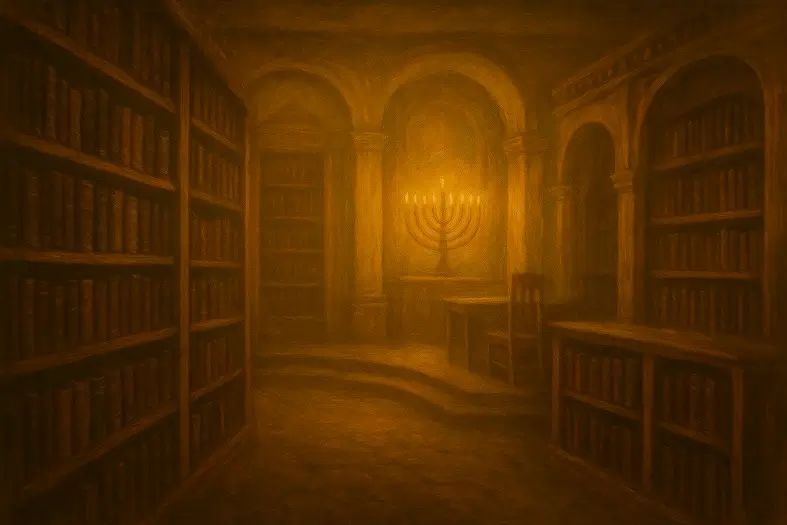


Every Jew is obligated to study Torah and to teach it to others, especially one’s children. This is called Talmud Torah.
This mitzvah obligates lifelong Torah study and the duty to pass it on. Rambam (Hilchot Talmud Torah 1:1–2) codifies that fathers must teach their sons Torah, and if unable, must hire a teacher. Torah study is not only an intellectual exercise but a covenantal duty binding Israel to Hashem.
The Talmud (Kiddushin 29a) derives that one must both learn and teach, since the verse says “you shall teach them” — implying that one cannot transmit what one does not know. Sefer HaChinuch (Mitzvah 419) emphasizes Torah as the life-force of Israel, instructing character, conduct, and holiness. Rashi (Deut. 11:19) explains that “when you sit…when you walk” shows Torah must permeate daily life. Ramban adds that constant study reflects cleaving to Hashem. Midrash (Devarim Rabbah 7:3) declares that Torah is the inheritance of Israel, and teaching it ensures its eternity.
Commentary & Classical Explanation:
Contrast with Shema (Mitzvah 76):
Parallel to Teaching Children (Mitzvah 23):
Daily Torah Study
Teaching Torah Widely
Parents and Children
Work-Life Balance
Teaching Converts and Outreach
Torah as a Public Good
Counteracting Distractions


Represents Emunah—the deep, inner trust in Hashem’s presence, oneness, and constant involvement in our lives. This badge symbolizes a heartfelt connection to G-d, rooted in belief even when we cannot see. It is the emotional and spiritual core of many mitzvot.
Used for mitzvot that reflect Judaism’s foundational principles—belief in G-d, reward and punishment, prophecy, Torah from Heaven, and more. These commandments shape the lens through which all others are understood.
Represents the concept of spiritual intentionality, purity, and sanctity—set apart for a higher purpose.
Reflects mitzvot rooted in love—of G‑d, others, and the world we are entrusted to uplift.
Mitzvot that strengthen communal life — showing up, participating, supporting, and belonging. Community is where holiness is shared, prayers are multiplied, and responsibility becomes collective.
Mitzvot that uphold fairness, honesty, and moral responsibility. Justice is kindness structured — ensuring that society reflects G-d’s order through truth, equity, and accountability.
Signifies awe and reverence toward Hashem—living with awareness of His greatness and presence.
Mitzvot that define and deepen the relationship between a person and their Creator. These include commandments involving belief, prayer, Shabbat, festivals, sacrifices, and personal holiness — expressions of devotion rooted in divine connection.
Mitzvot that govern ethical behavior, kindness, justice, and responsibility in human relationships. These actions build trust, dignity, and peace between people.

Dive into mitzvos, prayer, and Torah study—each section curated to help you learn, reflect, and live with intention. New insights are added regularly, creating an evolving space for spiritual growth.

Explore the 613 mitzvos and uncover the meaning behind each one. Discover practical ways to integrate them into your daily life with insights, sources, and guided reflection.

Learn the structure, depth, and spiritual intent behind Jewish prayer. Dive into morning blessings, Shema, Amidah, and more—with tools to enrich your daily connection.

Each week’s parsha offers timeless wisdom and modern relevance. Explore summaries, key themes, and mitzvah connections to deepen your understanding of the Torah cycle.